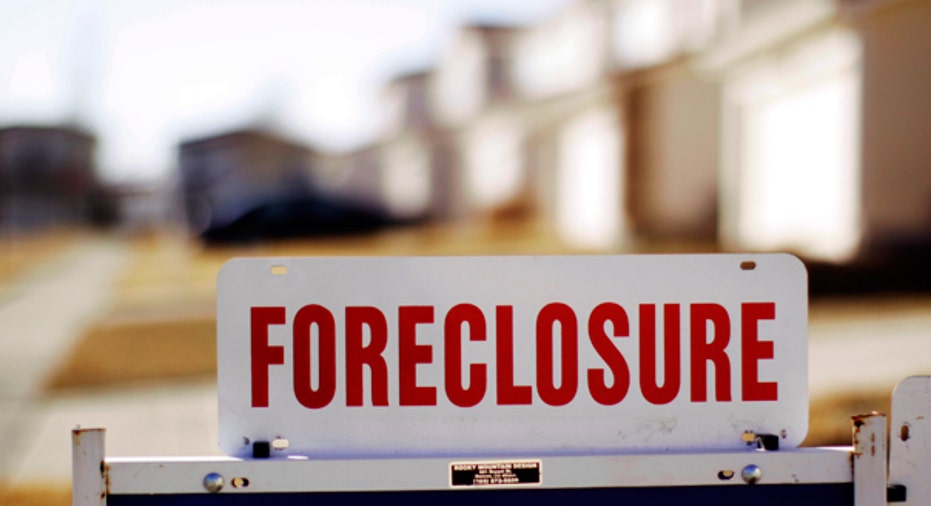How to Delay the Foreclosure Process

A foreclosure notice doesn’t mean you automatically lose your home in 30 days; experts say there are viable ways to delay, and potentially prevent, the bank from taking a home.
“One of the best ways to delay a foreclosure action is by submitting a HAMP (Home Affordable Modification Program) application,” says Jonathan Fox, a staff attorney at The Financial Clinic, a non-profit that works with low-income homeowners who don’t earn enough to be self-sufficient, but too much to qualify for government benefits. “HAMP automatically stays the progression of the foreclosure action.”
The length of the foreclosure process varies by state. If you live in a judicial foreclosure state, the bank or loan servicer has to file an action in court to foreclose on your home, which can take a couple of months. If you live in a non-judicial foreclosure state, the process is generally much speedier. Some states have variations on the process, so it pays to get an initial consultation from an attorney who is well versed in foreclosures in your state before making any decisions.
After being hit with a foreclosure notice, experts say the first step you should take is to evaluate whether you want--and can realistically afford--to stay in the home. If the answer is yes, the next step is to apply for a HAMP loan, which is a program offered by the government designed to keep people in their homes.
With a HAMP modification, the lender agrees to change the terms of the mortgage to make it more affordable for cash-strapped homeowners. The modifications typically involve a change in the interest rate or the monthly payment for a set period of time or permanently. Applying for a HAMP modification stops the foreclosure process while the loan servicer determines your eligibility.
“You can apply for a HAMP modification at any stage,” says Fox. “It’s available for people who are at default or at imminent risk of default.”
When applying for a HAMP modification, you can go directly to the mortgage lender or enlist the help of a HUD counselor or a non-profit agency that will assist for free.
“With a counselor we go through the budget and we find out the real income and real expenses,” says Isabel Duran, a housing counselor at ClearPoint Credit Counseling Solutions. “If there is a little leeway between plus $200 or minus $200 then we will call the bank and ask for a modification.” A HUD counselor will help you get all the paperwork in order, which can be cumbersome, and ensure you are getting a fair shake from the bank. It’s no guarantee you will qualify for a HAMP modification, but it will delay the foreclosure process while you apply.
If you are not approved for a HAMP modification, you can apply for a traditional or in-house modification with your lender. According to Fox, the terms may not be better than a HAMP, but it could mean the difference between staying in your home and losing it.
When you are facing a foreclosure, some states require you and the lender go through settlement conferences. These conferences are designed to ensure everything is being done to keep you in your home and can sometimes drag on for a year or more, and prevent a foreclosure from occurring.
If you can’t do a modification, a more costly option is to hire a foreclosure attorney to fight your case in court. Often times your mortgage is repackaged and sold as a security to investors, and sometimes the bank leading up the foreclosure process doesn’t hold the mortgage anymore or even know who owns it. In that case, a lawyer can argue the bank has no right to foreclose. According to David Charlip, an attorney at Charlip Law Group, going to court will, at the very least, delay the process, but some homeowners win and are able to keep their homes.
“You should hire a lawyer to force the bank to prove the case,” says Charlip. “Most of the banks, if pressed, can’t win.” While attorney’s charge different rates, Charlip says it’s not uncommon for a homeowner to pay around $300 a month.
But buyers beware when hiring a foreclosure attorney: The success rate isn’t proven, and there are countless stories of homeowners that were scammed by unscrupulous attorneys when going this route. Hiring a lawyaer is costly, something some experts argue would be money better spent putting toward what you owe instead of spending it on an attorney that may or may not be able to win.
“We don’t see any results from it,” says Duran of ClearPoint. “It’s more of a pipedream.”



















